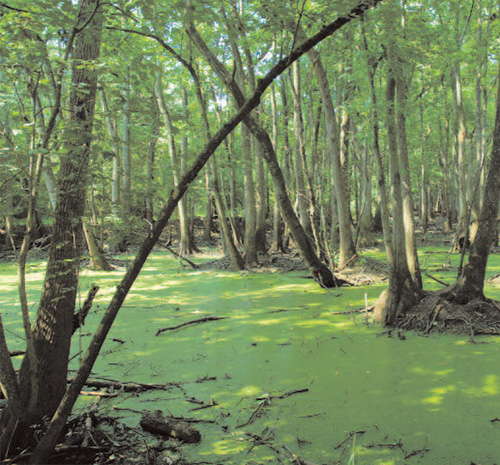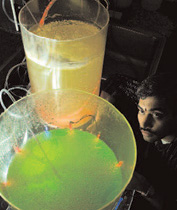Biodiesel
Big vehicles like trucks, buses, boats, and construction equipment typically have diesel engines. Diesel engines run on diesel fuel processed from crude oil, a fossil fuel. Biodiesel is a fuel for diesel engines made from vegetable oil or animal fats. Soybean oil and canola oil are two vegetable oils used to make biodiesel.
Fuel for Thought
 It takes less energy to make biodiesel from plant oils than it takes to distill corn for ethanol.
It takes less energy to make biodiesel from plant oils than it takes to distill corn for ethanol.
Using biodiesel has many advantages over using petroleum diesel. For one, it is plant-based, therefore a renewable energy.
Secondly, biodiesel lubricates moving engine parts better than petroleum diesel, so it reduces wear and tear on engines. Also, biodiesel exhaust does not smell bad (some say it smells like popcorn!) or release harmful emissions that contribute to acid rain.
Some scientists are excited about the potential of algae as a source of biodiesel. Algae are oily plants that grow quickly. If grown in the right conditions, algae can double in size in just hours. Algae can also be harvested every day.
Algae production is expensive. However, oil companies, universities, and the National Renewable Energy Laboratory are experimenting with algae. They hope to find an efficient way to grow it. Algae could one day become a major source of biomass.
Fuel for Thought
 Scientists believe algae could produce up to 5,000 gallons of biofuel per acre!
Scientists believe algae could produce up to 5,000 gallons of biofuel per acre!
